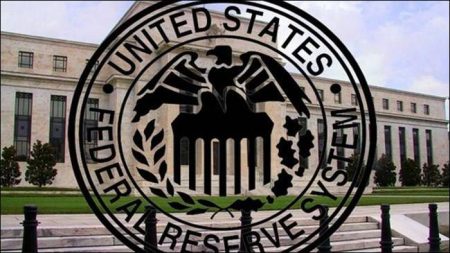While the markets focus on the Fed’s interest rate decision tomorrow, the Fed’s rate cut for the first time since 2008 is almost certain.
Despite hopes that the Fed would lower interest rates through good non-farm payrolls in July, Fed President Jerome Powell’s statements to the House of Representatives Financial Services Committee revived these hopes on July 11th.
In his speech to the House of Representatives Financial Services Committee, Powell noted that uncertainties over the economic outlook have increased in recent months, highlighting the risks associated with trade developments, federal debt ceiling and policy issues, including Brexit. Powell responded to the question of whether better-than-expected non-farm employment data affected their views, and led to increased Fed interest rate cuts in the markets.
In the US, the second quarter GDP data increased by 2.1 percent year-on-year in spite of expectations, but the leading data showed that manufacturing and economic activity slowed down and the inflation risk was still low, so the Fed is expected to cut interest rates. The Fed is most likely to do and the markets “insurance discount”, which is described as 25 basis points reduction, how much will be enough to skeptical. Experts, 25-base-point discount may not be enough, the Fed is expected to go to further discounts in the coming months.
Capital Economics
Andrew Hunter, Senior US Economist at Capital Economics, told the AA correspondent that the 25-point reduction in Fed’s interest rates would not prevent the economic slowdown.
Stating that the Fed would cut interest rates by 25 basis points at the meeting to be held tomorrow, slowing growth would lead to cuts in interest rates in December and March 2020, Hunter said that the Fed members saw a 25 basis point cut as an insurance but other economic cuts in economic activity said it would bring.
Hunter said that some Fed members support a 50bp discount, so the 25bp discount decision will not be taken with full consensus. Stating that the bank may terminate the balance sheet normalization program, Hunter said that the Fed may not be ready to cut interest rates in September but may have 25 basis points cuts in December and March 2020.
Hunter, 50 base points instead of 25 basis points to reduce the market risk of creating a disappointment, but the biggest protest in this decision may come from US President Donald Trump said.
Commerzbank
Commerzbank US and Fed Economist Cristoph Balz recalled Trump’s calls for lowering interest rates, adding that the Fed was affected by political pressure in the US.
Stating that the interest rate cut could be understood as an insurance against economic weakness, Balz said that a 50 basis point reduction could point to downside risks in the economy.
Balz stated that the 25 basis point cut would coincide with the Fed’s communication, but this amount would not be enough to recalibrate the monetary policy and predicted that there would be two more interest cuts in the coming months.
Views: 308



